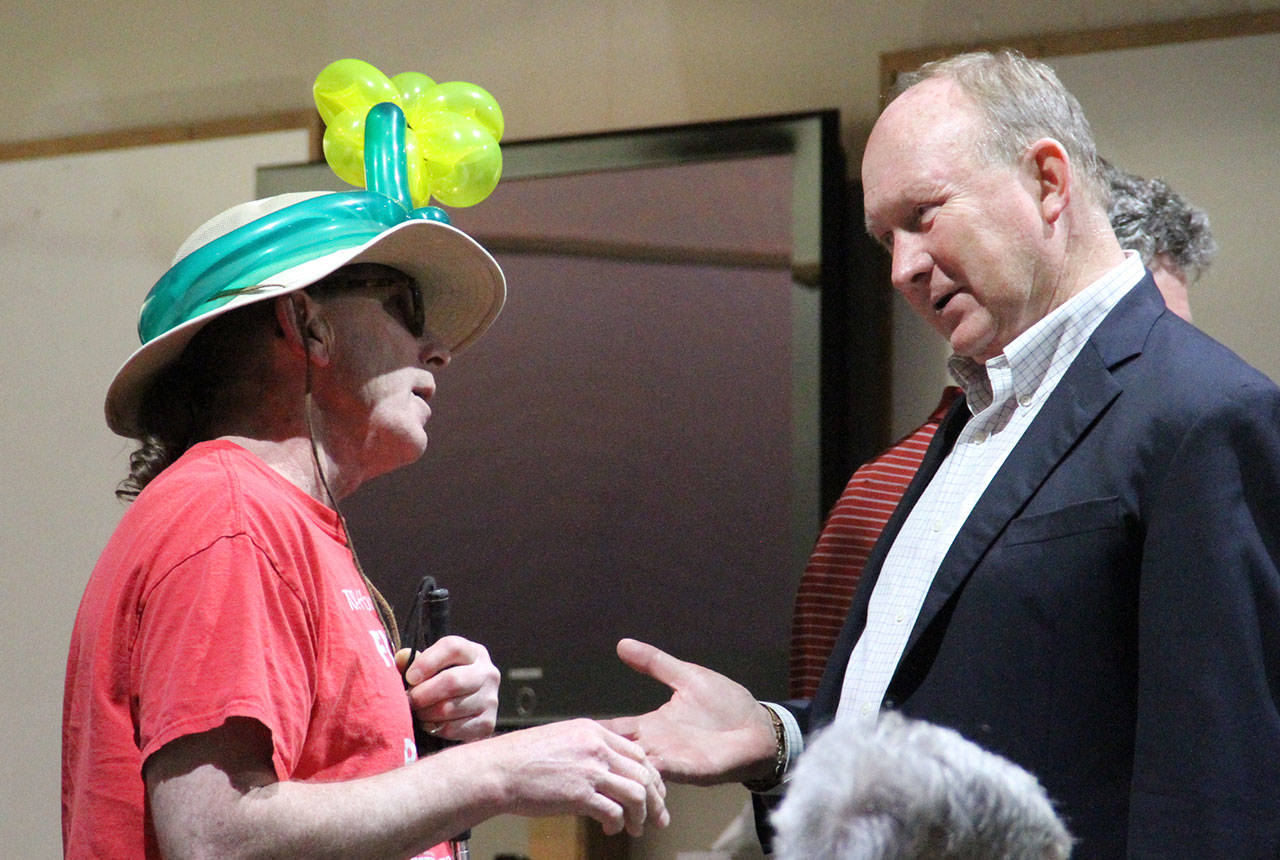Bainbridge City Councilman Mike Scott’s proposal to ban the sale and use of balloons lost a little air at this week’s council meeting.
Scott has suggested an ordinance that would not only prohibit the sale of balloons that are lighter than air — critics say such balloons can eventually wind up in the water and kill birds, marine mammals and other creatures — but also the sale and use of “any type of balloon that is not 100 percent biodegradable (including, but not limited to, any balloon containing plastic, metal, or Mylar).”
The new regulations would also prohibit people from releasing any balloons into the environment on Bainbridge, including balloons used for public and private events, celebrations and business promotions.
Weather balloons, hot air balloons, and balloons used by the government and scientists for research projects would be exempt from the ban.
“It’s time,” Scott said at Tuesday’s council meeting.
“I think as an island community, surrounded by water, with a strong commitment to sustainability and environmental responsibility. We can do away with the irresponsible release of balloons,” he said.
“Even though there were times when we thought that was fun or beautiful, we now know it’s not. It’s deadly, and it’s polluting,” Scott said.
But others, including some on the council, said the new rules were too restrictive.
“It goes way too far,” said Ben Rockwood.
He said the proposed ban was “completely ridiculous” and would subject the island to more outside ridicule.
Tamarah Rockwood added that considering balloons as litter would subject people to the harsh penalties of the city’s litter law, which include fines up to $500 and six months in jail.
“Issuing prison time for having a balloon in your house is clearly outrageous,” she said.
Rockwood also said many of the things sold in grocery stores have packaging just as harmful to the environment as balloons, and filled the floor in front of the public comment lectern with examples, including a box of pop tarts, cellophane-wrapped flowers, tortilla chips, a container of cut watermelon.
While Scott’s colleagues on the council thanked him for highlighting the issue, they also decided to remove language in the proposed ordinance that prohibited the sale and use of balloons that are not 100 percent biodegradable. (Scott and Councilman Wayne Roth voted against the change, which passed on a 5-2 vote.)
The revised ordinance will come back to the council for more review on Sept. 12.
Cities and states elsewhere in the country have banned the sale of Mylar balloons, and some governments have also adopted restrictions on the release of lighter-than-air balloons. States with restrictions on balloon sales include California, Florida, Connecticut, Tennessee and Virginia.
Bainbridge also notes that the cities of San Fransisco, California; Louisville, Kentucky; Baltimore and Ocean City, Maryland; and Nantucket, Maine have rules on the purchase and sale of balloons.



